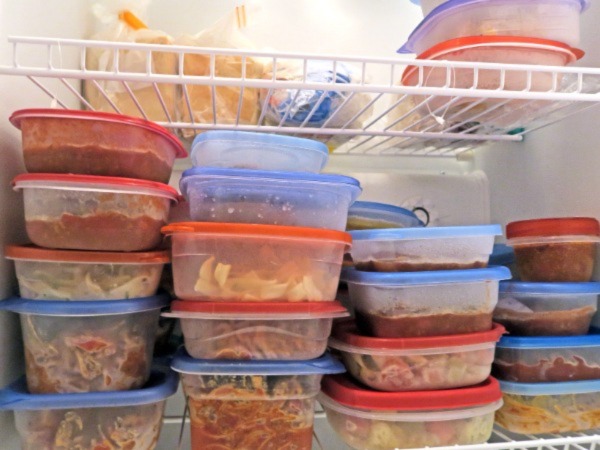
In the United States, about 40% of all food goes to waste. That wasted food costs a family of four about $1,500 each year!
At home, you can reduce your food waste by using the 3 Rs — Reduce, Reuse, and Recycle:
- Reduce your food waste at home by planning your meals for the week. Only buy what you need to make those meals. If possible, try to avoid ingredients that can only be used in one specific meal. Only make as much food as your family needs, and store leftovers in your freezer or refrigerator to be eaten later.
- Get the most out of your ingredients. If you have extra ingredients that you need to use up, take inventory of what you have and then look online for recipes that use those ingredients. You might discover your new favorite meal!
- If the portions are large at a restaurant, share with someone else in your party.
- Bring your own reusable containers to take leftovers home with you. Remember to eat the leftovers soon.
- Organize your refrigerator to create an “eat first” shelf for leftovers and items that are close to their “best by” dates.
- Freeze extra food. Food that is frozen can be thawed out and used even months later.
- Make your own stock. Vegetables that are reaching the end of their freshness can be tossed into a pot with water and aging spices and then simmered into a delicious stock. This stock can then be frozen for future use.
- If you have unwanted food, share it with friends or donate it! Local food banks always appreciate donations of nonperishable foods. Perishable goods, such as produce or baked goods, can be shared among friends and quickly make you the most popular person in your neighborhood.
- Compost your food scraps. You can compost fruit and vegetable scraps, as well as bread, pasta, grains, coffee grounds, and tea bags, in your backyard compost bin or pile. Bury the food about 10″ below the surface to discourage unwanted pests. You can also compost food scraps in a vermicompost (worm composting) bin indoors or an in-ground food composter outdoors.
For more information:
For more tips to reduce waste and save money, check out savethefood.com, the USDA’s My Plate, and the EPA’s Preventing Wasted Food At Home. Or read Waste Not, Want Not and Food Expert Focuses on Food Waste.
Image credit: wwing | iStock | Getty Images Plus
